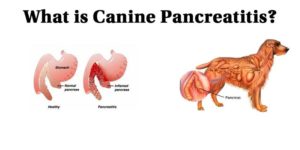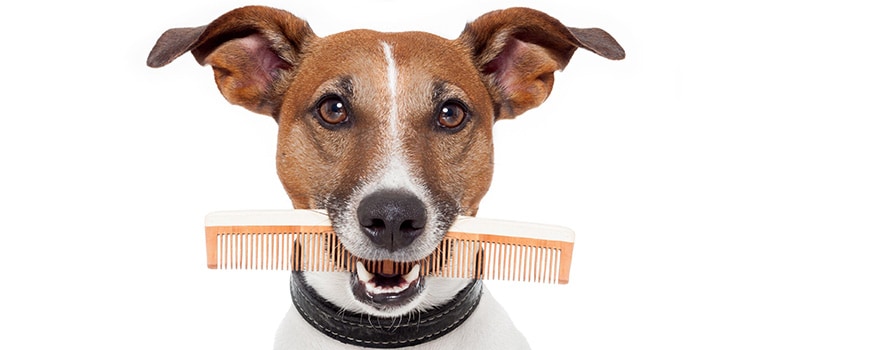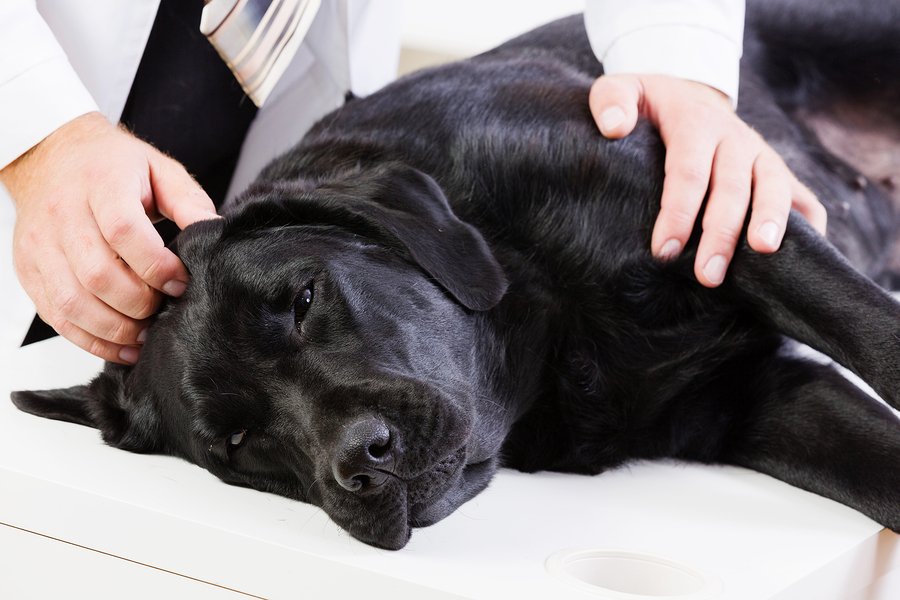The most common condition affecting the exocrine pancreas is pancreatitis. Pancreatitis, or pancreatic inflammation, is encountered in both dogs and cats and ranges in severity from moderate GI upset to a life-threatening disease.
The causes of pancreatitis in dogs are often vague, although it may be triggered by couple of factors:
- The consumption of different foods containing large amounts of fat. These foods cause excessive secretion of pancreatic enzymes, leading to pancreatic inflammation. These kind of foods usually comes from humans as treats, when feeding them under the table.
- The consumption of spoiled or bacterially contaminated food. This can occur when dogs get into the garbage, in search for food. Bacteria from the food move from the intestine through the pancreatic duct and into the pancreas, causing infection and inflammation.
Which Dogs Are at Risk to Develop Pancreatitis?
Dogs with concurrent disease of the liver or intestines, diabetes, or hypothyroidism (low thyroid function) may be more prone to pancreatitis. Middle-aged to older overweight dogs seem to be the most affected; Miniature Schnauzers, Dachshunds, and Yorkshire Terriers are most at risk.
Symptoms of Pancreatitis
Symptoms of a dog with pancreatitis include severe abdominal discomfort, vomiting, diarrhea, and/or lack of appetite.
These signs occur when digestive enzymes that are normally secreted by the pancreas begin to seep into the pancreatic tissue as a result of inflammation and /or infection. When this occurs, the pancreas itself becomes subject to its own digestive fluids.
Most cases of pancreatitis are acute and relatively short-lived, although chronic pancreatitis in some dogs does occur. In chronic cases, smoldering inflammation within the pancreas can flare up at any time.
 These flares are sometimes associated with a diet change or your pet getting into food they were not supposed to eat. For dogs that are overweight, returning them to a more ideal body weight may limit or resolve chronic pancreatitis.
These flares are sometimes associated with a diet change or your pet getting into food they were not supposed to eat. For dogs that are overweight, returning them to a more ideal body weight may limit or resolve chronic pancreatitis.
There are two ways the exocrine pancreas can go wrong. The organ can either be under-functioning, causing exocrine pancreatic insufficiency, or it can become inflamed, leading to pancreatitis.
Exocrine Pancreatic Insufficiency
Exocrine pancreatic insufficiency (EPI) is primarily a condition of dogs. While feline EPI occurs, it is very rare. The pancreas is underproducing or not producing the enzymes required to break down foods for digestion.
EPI is frequently genetic but can occur as a result of chronic pancreatitis leading to inflammatory destruction of the exocrine pancreas. Either way, the result is that food is not properly broken and thus passes through the GI tract without being absorbed.
The classic symptoms of EPI are low body weight, ravenous appetite, and voluminous, light-colored stools. EPI is most commonly seen in German Shepherds, but is seen in other breeds of dogs as well.
How to Test for Pancreatitis and EPI
Dogs with pancreatitis frequently have symptoms of vomiting, diarrhea, and/or abdominal pain. They may or may not have a known history of a diet change or dietary indiscretion (that’s a nice way of saying they ate something gross).
When your dog’s history and physical symptoms suggest pancreatitis, the following tests may be used to confirm the diagnosis.
- Blood tests: Your veterinarian will check systemic body function with a complete blood count (CBC) and blood chemistries. Also, a specific test for pancreatitis called canine pancreatic lipase (cPL).
- Abdominal ultrasound: Ultrasound is an excellent (and widely available) method of visualizing the pancreas in a noninvasive way. Most dogs do not even require sedation. Many veterinary radiologists believe that ultrasound is a better diagnostic indicator of pancreatitis than cPL.
Because EPI is not a condition that occurs all that frequently, veterinarians will rightly want to eliminate more common conditions first by doing a standard screening to rule out gastrointestinal parasitic diseases (ova, parasites, and giardia) prior to testing for EPI.
- Trypsin-like immunoreactivity (TLI): TLI testing is the definitive diagnosis for EPI. TLI testing is frequently combined with a check of cobalamin and folate (both B vitamins) levels to concurrently evaluate for bacterial overgrowth in the small intestine. The presence of all that undigested food is a feast for microorganisms.
If your dog has been diagnosed with pancreatitis or EPI, there’s a conventional medical treatment and complementary and alternative medical therapy, that can be used by your veterinarian to combat this disease.

